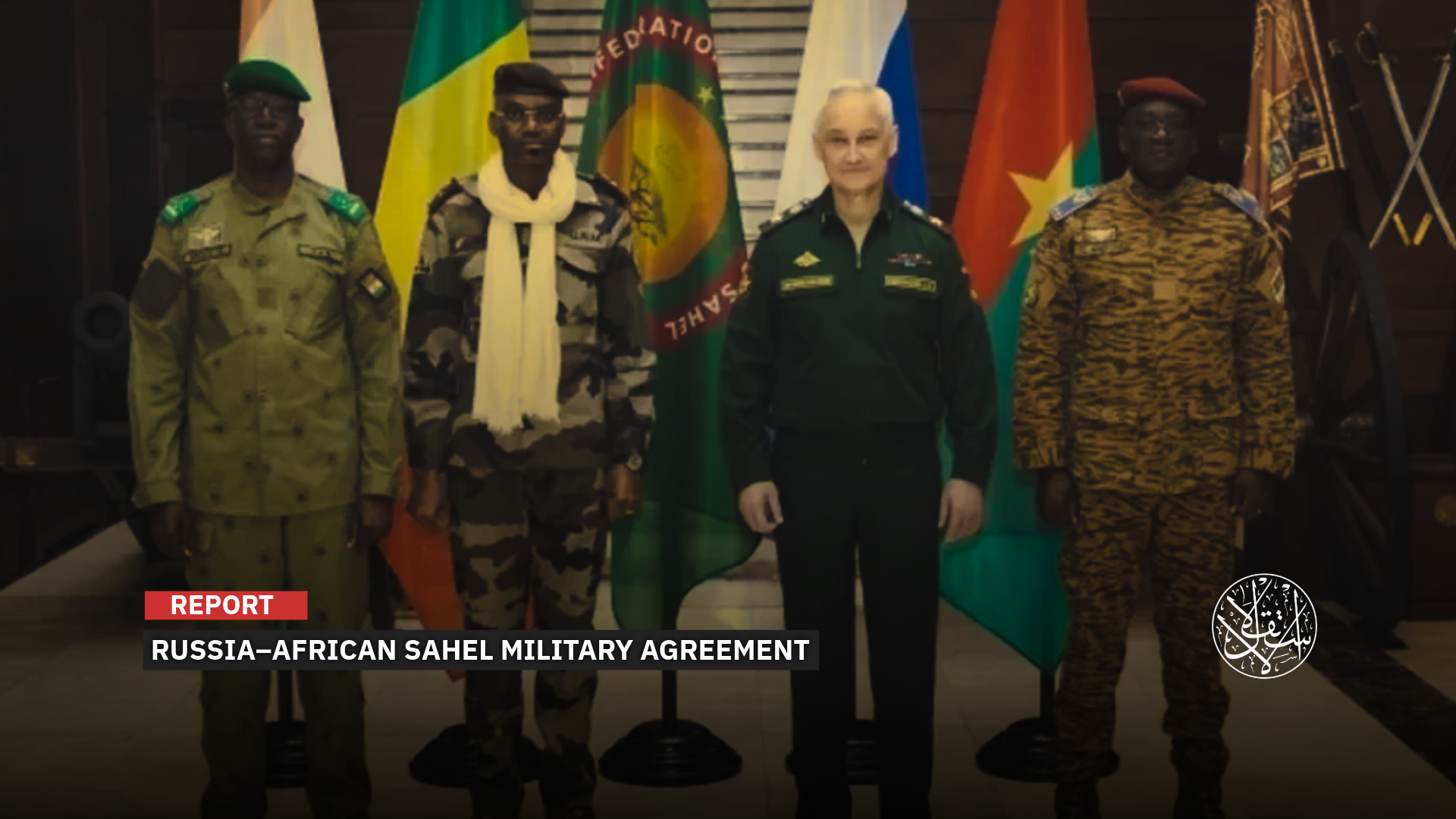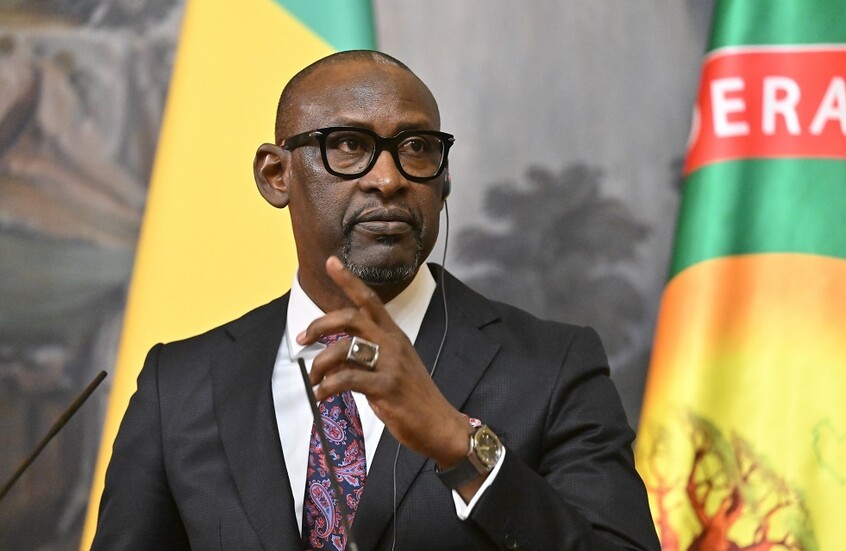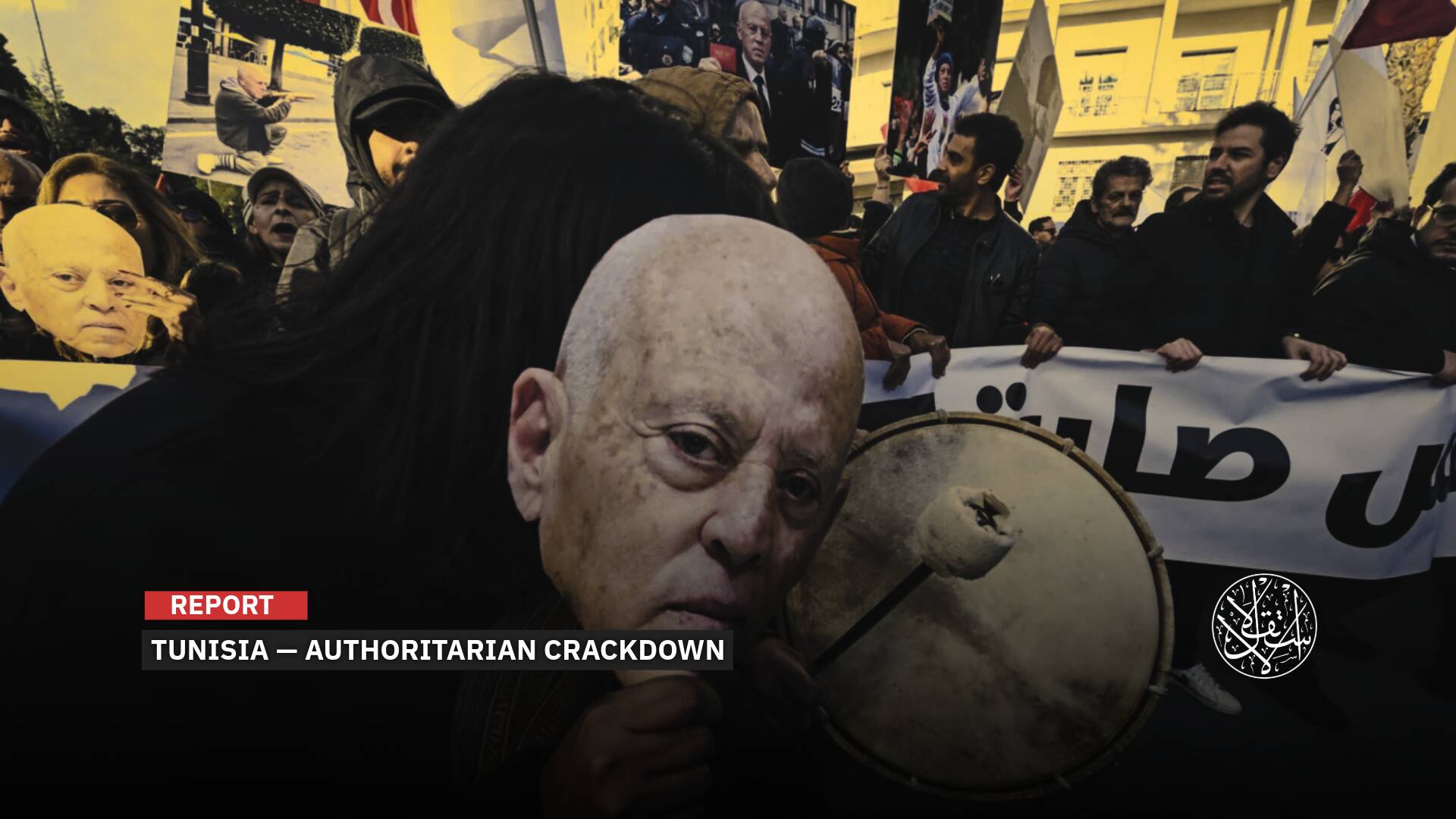Sahel States and Russia Establish Strategic Military Partnership: Messages and Objectives

“What is happening in the Sahel exposes the failure of traditional European models that dominated the region for decades without achieving real stability.”
The Sahel States and Russia are deepening their strategic partnership, with a particular focus on military cooperation, built on shared interests to confront mounting security challenges and to shape an alliance independent of former colonial powers.
That partnership took clearer form on August 14, 2025, when Russia invited the defense ministers of Mali, Burkina Faso and Niger to Moscow for talks centered on strengthening security ties with the region.
New Framework
According to the Russian outlet Sputnik, Defense Minister Andrei Belousov said on August 15 that terrorist threats and armed groups remain active in Burkina Faso, Mali, and Niger. He added that Moscow is prepared to provide comprehensive support to help stabilize those countries, describing the decision to form the alliance as the free choice of the Sahel’s peoples and their path toward peaceful and sustainable development.
Belousov stressed that the Russian Defense Ministry is prepared to offer broad support to secure stability in the region, saying Moscow backs the Sahel States’ position on the need to strengthen security and protect their territory and sovereignty.
The Moscow meeting brought together Mali’s Defense Minister Sadio Camara, Niger’s Salifou Modi and Burkina Faso’s Celestin Simpore, Africa News Agency reported.
According to Camara, the visit was intended to reinforce the strategic partnership between Russia and the Alliance of Sahel States (AES) in the face of mounting security threats. He said the ministers held a working session to expand military cooperation in line with the shared vision of Presidents Vladimir Putin, Assimi Goita, Abdourahmane Tchiani and Ibrahim Traore.
Niger’s defense minister added that the new security cooperation reflects the determination of Niger, Burkina Faso, and Mali to build a regional security framework and pursue a foreign policy rooted in their own national interests.

Mutual Interests
Speaking to reporters, Ali Yaqub, professor of the Islamic University of Niger, described the new military cooperation pact between Russia and the Sahel States as “highly significant.” He said Moscow is expected to provide the Alliance of Sahel States with weapons and military equipment that could bolster their defenses, noting that Sahel armies have long lacked modern arms.
Hamdi Bashir, an academic researcher, argued that the AES is showing growing interest in deepening ties with Russia, particularly in the military sphere. In an analysis published August 18 on the APA International Association for Experts, he said the joint visit to Moscow marked a step toward building a confederal union aimed at coordinating military, diplomatic, and economic policies.
The three countries, he noted, have already aligned much of their diplomacy around a shared anti-Western orientation and emphasized the need to “speak with one voice.” He called the Moscow trip the highest level of joint diplomatic engagement the bloc has undertaken with an external partner.
Bashir added that the juntas in Mali, Burkina Faso, and Niger are also seeking stronger terms in their mining contracts, not only with Western firms but with Russia as well, trading natural resources for arms, equipment, and training. The push, he said, reflects a broader effort to resist outside pressure and assert greater autonomy after leaving the Economic Community of West African States (ECOWAS).
The AES has already announced plans for a joint airline, a shared passport, and a regional investment bank; securing Russian support for such initiatives was likely a key goal of the visit. Looking ahead, Bashir predicted closer military cooperation, the possible establishment of Russian bases in the Sahel, and eventual backing for the AES to join BRICS, a move that would deepen the geopolitical rift between Moscow and the West, especially amid the Russia-Ukraine war.

The Diplomatic Track
This military meeting followed a prior diplomatic encounter in early April 2025, when Russian Foreign Minister Sergey Lavrov hosted his counterparts from Burkina Faso, Mali, and Niger. The ministers discussed the evolution of security cooperation between Russia and the Sahel States, as well as broader bilateral issues including trade, economic development, culture and humanitarian matters.
Malian Foreign Minister Abdoulaye Diop told the Russian news agency Novosti that the Sahel States are counting on Moscow to help establish a domestic military industry. He said that ongoing projects with Russia span security, diplomacy and economics, aimed at strengthening capabilities and reducing dependency on external powers.
Diop emphasized the growing need for military equipment and arms, adding that they would work with Russia, its companies, and the state to build military capacities and a domestic defense industry, which he said would reduce reliance on imports, create jobs, and advance structural transformation toward local manufacturing.
Lavrov, speaking after the meeting, framed the cooperation in geopolitical terms, warning that nonregional actors, including former colonial powers, are attempting to destabilize Africa. He reiterated Russia’s readiness to provide defense and security assistance to the Sahel States and said the agreement reaffirmed alignment on major international issues and underscored the central role of the United Nations.
“We are grateful to our friends for supporting Russia’s numerous initiatives under consideration by the General Assembly, such as combating the glorification of Nazism, eradicating colonialism, preventing the weaponisation of outer space, and others. We traditionally support each other’s candidacies to UN bodies as well,” Lavrov said.
A New Phase
Abdelwahab Elkayen, head of Africa Watch, described the Sahel States’ turn toward Moscow and the signing of unprecedented agreements with Russia as a decisive step that has effectively ended decades of dependence on former colonial powers.
“The withdrawal of Wagner from these countries and the arrival of Russia’s Africa Corps marks a shift from informal ties to full institutional cooperation, culminating in significant agreements between Moscow and the Sahel governments,” he told Al-Estiklal.
“The expansion of Russian influence in the Sahel, the decline of French sway, and the rise of a new axis led by local rulers represent an existential challenge to external powers that seek to intervene in the region.”
“What is happening in the Sahel, with rapid military and political changes, signals the end of one phase and the start of another in the regional balance of power,” Elkayen said. “It exposes the failure of traditional European models that dominated the region for decades without achieving real stability.”
He noted that for years the African Sahel was a testing ground for French and European military experiments, characterized by inefficiency and dual standards, and weakened further by the declining American presence, leaving the region open to external interference that disregarded national sovereignty. These interventions kept local institutions fragile and fueled insurgencies, particularly among Tuareg and separatist movements in northern Mali, a gap Russia now seeks to fill with a new logic of mutually beneficial partnership.
Mina Laghzal, coordinator of the Sahrawi NGO Alliance, said Moscow’s push to forge new partnerships in Africa, especially in the Sahel, was not incidental. She told Al-Estiklal that it was a strategic necessity shaped by the geopolitical shifts arising from the Russian-Ukrainian war and Moscow’s effort to break Western isolation by positioning itself in alternative spaces.
Laghzal said the partnerships went beyond diplomatic symbolism, taking practical form through Russian support for new governments that emerged from popular uprisings against failed, French-backed regimes. This strengthened Russia’s military presence as a credible alternative, particularly as French influence receded and European coordination with local regimes faltered.
She added that Russia benefited from its lack of colonial baggage in Africa, making it a preferred partner for countries frustrated with repeated Western interventions that claim to fight terrorism but often serve dominance and exploitation.
The 2019 Russia-Africa Summit, she said, exemplified this shift by opening the door to equitable cooperation that respected national sovereignty and priorities, free from external imposition.
“Unlike Western powers, Russia has shown field-level flexibility and direct operational coordination with local armies, especially in Mali, including intelligence sharing and drone data,” Lagzal said. “This has strengthened these states’ trust in Moscow as a reliable security partner, in contrast to Europeans who maintained control without effectiveness.”
“The ongoing transformations in the Sahel are redrawing regional balances, with these countries asserting through multiple initiatives their commitment to a new African vision grounded in sovereignty, integration, and mutual respect,” she concluded.
Sources
- Moscow and the AES deepen military cooperation [French]
- Motives for the Alliance of Sahel States Delegation's Visit to Russia [Arabic]
- In Mali, Burkina Faso and Niger: the Worrying Advance of Jihadists in the Sahel [French]
- Belousov: Russia Ready to Provide Full Support to Stabilize Burkina Faso, Mali, and Niger [Arabic]
- Malian Foreign Minister: Sahel States Rely on Russia to Build Defense Industry [Arabic]
- Foreign Minister Sergey Lavrov’s statement and answers to media questions









